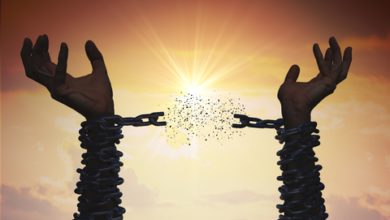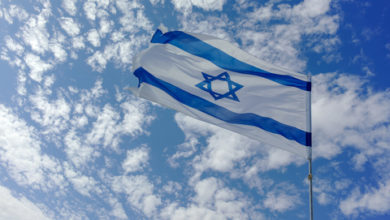Exception to the Rule | Haftarah
There have been a number of prominent people in the history of Israel who lived as a nazir, an ascetic who refrains from drinking wine. The one whose laws are discussed in greatest detail is Samson, as appears in the Haftarah for this week: “The boy will be a nazir of G-d from the womb” [Judges 13:5]. Evidently the reason for this great detail is that Samson is the best example of the essence of the ascetic trait of the nazir, as one who stands apart from the norm and who is comparable in some ways to the High Priest (in that he is not even allowed to come in contact with the dead bodies of his closest relatives). In addition, Samson’s actions stood apart from the usual norm, and it is difficult to see him as a model to be emulated.
Specifically this unique man, who followed the desires of his eyes and fought as an individual, is the one who began the process which led to Israel’s salvation. This can be compared to the path of Nachshon Ben Aminadav at the Red Sea, to the pioneers who led the way in the beginning of Zionism, and in general to all those who lead the redemption based on the “daring” of the “footsteps of the messiah,” which Rav Kook analyzed in depth through the actions of the secular Zionists.
The figure who stands out as a leader of the process in this week’s Haftarah is Manoah’s wife. “And Manoah followed after his wife” [Judges 13:11]. Evidently this was not common in the ancient world, where men had exclusive control over the events in society. This action, reminiscent of “the woman of valor who is the crown of her husband” [Proverbs 12:4], symbolizes the shattering of the accepted hierarchy in matters of redemption – where the hidden strengths of life come out into the open and demand to play an active and open role in the events of the day.
The sharp breakthrough that is necessary in order to initiate a change is typical of pioneering actions: “He will begin to rescue Israel from the Philistines” [Judges 13:5].
Educators are faced with a dual-sided problem when they encounter unusual behavior: How can they include the specific individual along with the others? And what limits can be set on his or her legitimacy? Clearly, it is not possible for a well-behaved society to accept uncontrolled spiritual anarchism, even if the innermost desire of the soul is for “broad expanses, Divine expanses according to what is desired by the soul – Do not lock me into any cage, neither physical nor spiritual” [Rav Avraham Yitzchak Kook].
It would seem that the key to finding the proper balance is to trust in the leadership of G-d, and that He would never allow the world He created to be destroyed. See what Manoah’s wife said: “If G-d wanted to kill us, He would not have accepted the sacrifices from us, and He would not have shown us all of this or said to us what he said” [13:23]. The same is true of Samson’s mother and father when they showed their faith in the name they gave him, which implies that he is as independent as the sun, which by itself is a source of light. This trust that he was given is what allowed him to use his unusual talents in a way that led to blessings for the nation of Israel: “And the youth grew and G-d blessed him. And the spirit of G-d began to appear through him in the camp of Dan, between Zorah and Eshtaol” [13:24-25].
Source: “NOTES FROM THE HAFTARAH” – a biweekly column in Shabbat B’Shabbato (Zomet Institute) See: http://www.zomet.org.il/eng – Nasso 5776, issue 1627.




